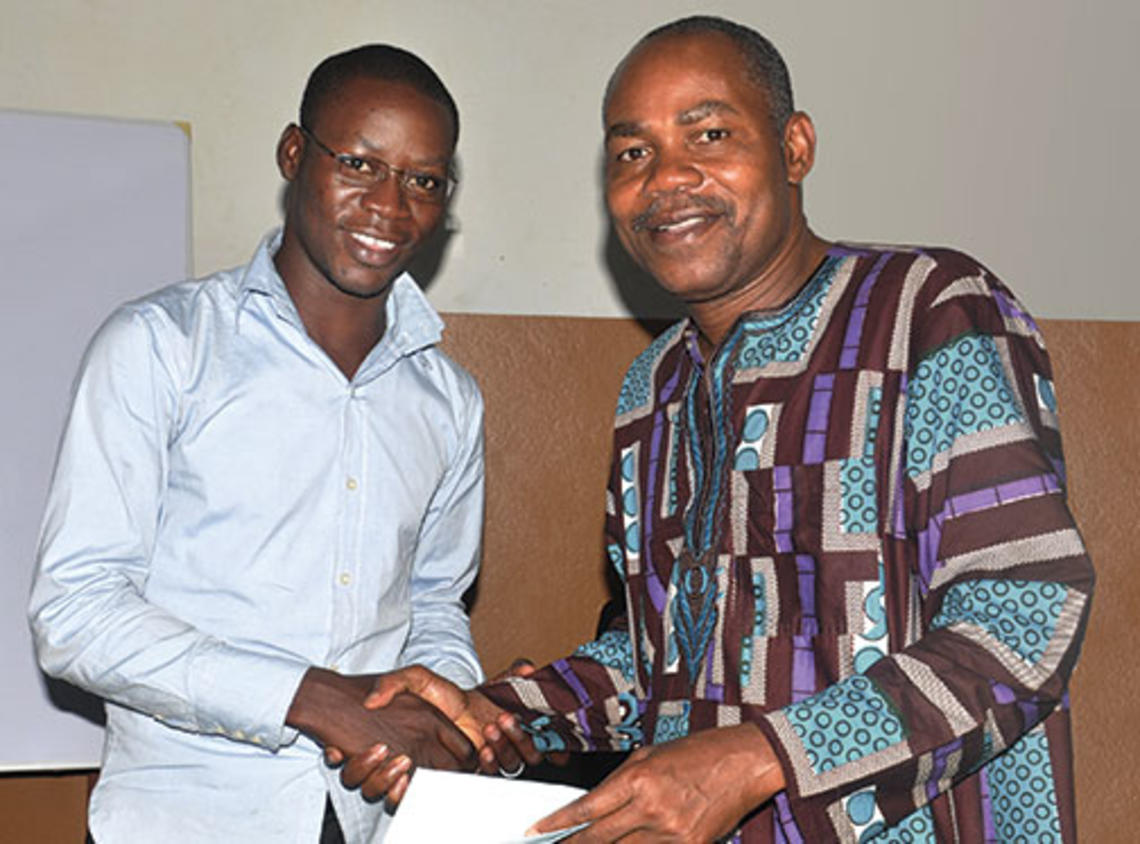Politics: Training Africa’s Leaders
Leonard Wantchekon is building a university for economics in West Africa

Politics professor Leonard Wantchekon has an ambitious plan: to train the next generation of African leaders. He has founded the African School of Economics (ASE), a university set to open next fall in Benin, West Africa. “Ideas that will shape Africa have to involve as many Africans as possible, but this cannot happen if those Africans are not properly trained,” he says. “I thought I was in a unique position to draw attention and resources to train young Africans.”
African development has been the bedrock of Wantchekon’s life. As a university student in Benin in the 1980s, Wantchekon was a pro-democracy activist, leading protests against the dictator Mathieu Kerekou. He spent 18 months in prison, where he was tortured, before escaping and fleeing to Canada as a political refugee. He earned a Ph.D. from Northwestern University and eventually joined the faculty at Yale and then New York University before arriving at Princeton in 2011.
Wantchekon conducts research on African economic development and democratization. He has examined how a nation’s founding — whether it is achieved through a rebellion or a social movement — affects its long-term stability. He also is studying the effectiveness of different campaign techniques in West Africa.
In 2004, he founded the Institute for Empirical Research in Political Economy in Benin, which has more than 80 graduates trained in research who have gone on to work at think tanks and in governments across the continent and to attend graduate programs abroad. Last summer, 14 Princeton students attended a summer school and conference on development economics at the institute in Benin. Yang-Yang Zhou, a politics graduate student, came away inspired. “Most research on African politics and economics is dominated by Westerners,” she says. “It was incredible to be able to work with African researchers whose understandings are informed by personal experience.”
The African School of Economics opens next fall with graduate students from across Africa and elsewhere. In its first two years, ASE plans to enroll 300 students in master’s degree programs in business, development, and economics. Future plans include an undergraduate program. Wantchekon’s goal is to have 5,000 students at ASE.
By far the largest hurdle has been securing funding, says Wantchekon: “Not many people believe that what Africa needs is a top-rate university.” Donors are more inclined to contribute to immediate crises, such as deploying aid workers, but he believes there must be parallel funding to train Africa’s next generation. He points to America’s top universities, which he notes were established “not to resolve a short-term crisis, but with an eye toward the future.”
So far, Wantchekon has secured nearly $2 million in grants from the World Bank, the Women for Africa Foundation, and other groups. Princeton has allocated $300,000 to support joint programs and research.
Wantchekon hopes there will be a vibrant exchange of faculty and students between Princeton and ASE, enriching the offerings of both institutions: “Our vision is to put our stamp on the leadership of the Africa of the future.”










0 Responses